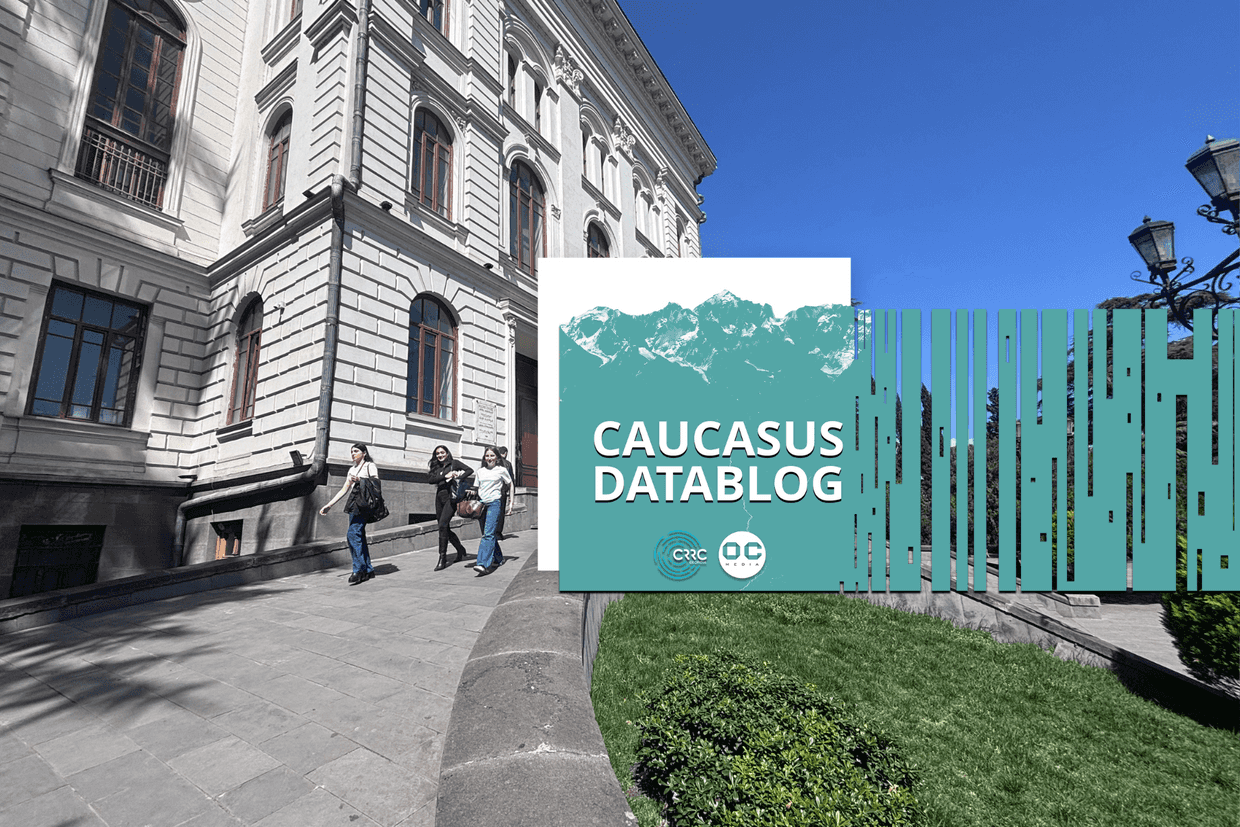
Datablog | Is quality education in Georgia really accessible for all?
Most Georgians believe access to quality education is fairly equitable between men and women.

Most Georgians believe access to quality education is fairly equitable between men and women.

A 2023 study found that one in four women in Georgia had experienced intimate partner violence at some point in their lives.

A CRRC survey found that only one in eight Georgians know what the EU Monitoring Mission (EUMM) in Georgia aims to achieve, with the largest proportion of those surveyed reporting that they do not know what the mission’s function is. Georgia’s EUMM was established after the August 2008 War between Georgia and Russia, with the aim of stabilising ‘the situation on the ground’, and the unarmed civilian monitors continue to patrol Georgia’s administrative boundary lines with Abkhazia and South Os

In an increasingly polarised media environment, Georgians have mixed feelings about how much TV and TV journalists can be trusted. Over the past decade, TV as a source of news has been on the decline in Georgia. With just 53% of those surveyed in 2021 using TV as their primary news source, as compared to 88% in 2009, it is clear that TV has lost its dominance. Nonetheless, it remains the main news source for half of the adult population. This fall in TV consumption has taken place again

Newly released data from the Knowledge of and Attitudes towards the European Union in Georgia survey, which CRRC Georgia carried out for the Europe Foundation, suggests that the public’s attitudes are changing about women having pre-marital sex and children out of wedlock. While in 2015, 69% of Georgians thought that it was never justified for a woman to have pre-marital sex, 55% did in 2021, a 14 percentage point decline. During this same period, there was a 10 percentage point increase in t

Georgian folklore is filled with stories of demons and devils; yet, everyone knows children’s stories are just that. However, new opinion polling from the ISSP Survey on Religion suggests that the vast majority of Georgians believe in the supernatural. The study, which was conducted in 2019 by CRRC Georgia, asked about whether people think the following statements are true or false: * Good luck charms sometimes do bring good luck; * Some fortunetellers really can foresee the future; * Som